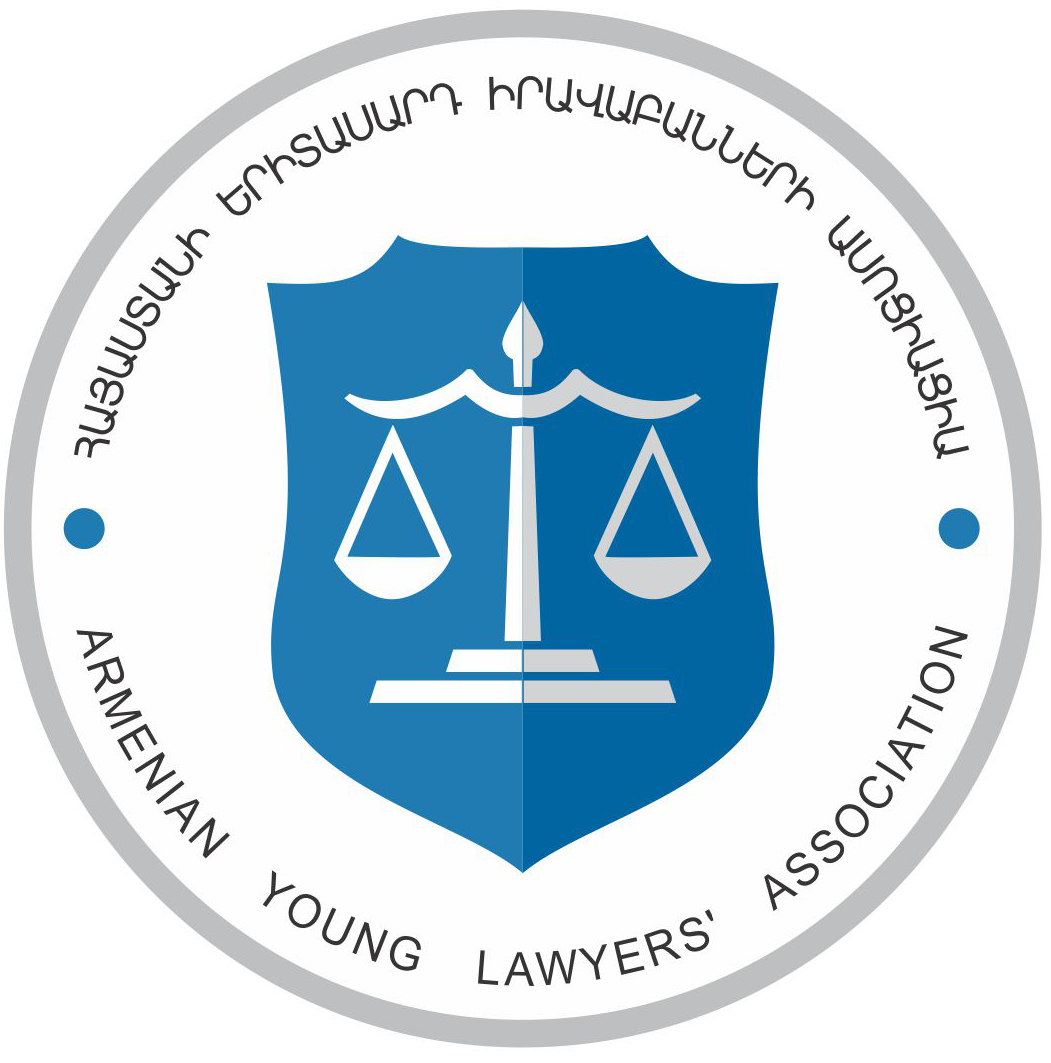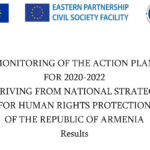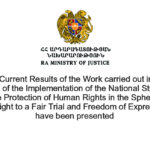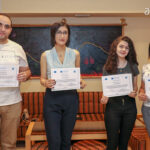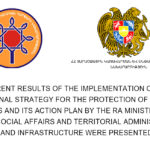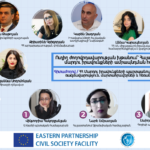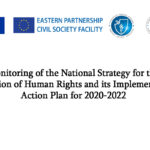There are Violations of Human Rights in the Labor, Education, and Judiciary Fields: Regional Discussion on the National Strategy for the Protection of Human Rights

Public discussions on raising awareness on “Promoting Direct Democracy for Strengthening Human Rights in Armenia” project and the discussion of the RA “National Strategy for the Protection of Human Rights and its Implementation Action Plan for 2020-2022” are underway in the RA regions. On 19 May, the 3rd seminar-public discussion took place with the participation of representatives of NGOs, lawyers, advocates, of Syunik, Vayots Dzor and Ararat regions, Syunik regional administration, Kapan Community Administration, representatives of the RA Human Rights Defender’s Syunik regional Office and other interested parties.
Ms Syuzanna Soghomonyan, President of the Armenian Young Lawyers Association, the Project Manager presented the work planned to be carried out in connection with the the RA “National Strategy for the Protection of Human Rights and its Implementation Action Plan for 2020-2022”.
“Our goal is to monitor the human rights strategy, which will be not only quantitative, but also qualitative, because experience shows that in many cases the measures are being implemented, we have achievements in terms of quantitative data, but when it comes to qualitative level, to find out how much these measures have affected improvements in this or that area, we face the problem, because there are no expert opinions and assessments at the qualitative level and we are satisfied with what the government and various agencies present to the public,” Syuzanna Soghomonyan said.
Sociologist-expert of the project Ms Sonya Msryan presented the methodology and directions of the monitoring, noting that due to the multidisciplinary nature of the strategy, there will be a need to involve a large number of specialists and experts in the work.
Vache Baghdasaryan, Coordinator of the Syunik Regional Branch of the Armenian Lawyers’ Association, thanked all the participants for participating in the discussion and for their cooperation. He noted that in order to raise the problems and solve them, the state should develop mechanisms and involve state and local self-government bodies, civil society representatives and other interested parties in these activities.
Ms Tamara Stepanyan, a representative of the RA Human Rights Defender’s Syunik Office, spoke about the problems related to labor rights. “At the moment, there is no extrajudicial body on labor law issues, and the Human Rights Defender has raised the possibility of creating such a body in case of not applying to court, and now it is under discussion,” she said.
Ms Susanna Martirosyan, President of the “Rainbow” Educational Center, spoke about the problems in the field of education. She particularly mentioned the problems that arose during the state of emergency, specifically the shortcomings of distance education. As a pedagogue with many years of experience, she also spoke about the role of the teacher, noting that it is the teacher who first of all raises the perception of the role of the teacher. “If the teacher enters the classroom armed with knowledge, in the mood to work in a new style, works on himself, the children will definitely listen to the lesson. No one can convince me that a student will not participate in a class if the teacher is proficient in the class. We ourselves must feel responsible and not lay everything on the state,” Susanna Martirosyan said.
“According to official data, there are no children left out of education in the region, but if there have been cases when children did not participate in the educational process for various reasons, they received a quick response and worked with relevant bodies to try to involve the child in the educational process. As for the fact that the child is not interested in education, it is already a matter of politics,” Ms Anna Voskanyan, head of the Family, Women’s and Children’s Rights Protection Department of the Syunik regional administration said.
Lawyer Hrayr Khachatryan mentioned the problems in the judicial system, in particular the late appointment of sittings due to the workload of the courts, the replenishment of vacancies of judges, etc.
The participants of the discussion also mentioned other issues, which were summarized by the lawyer-expert and will be taken into account in the process of monitoring, reporting and elaboration of proposals.”
It should be added that a similar discussion has already been held with the participation of representatives of Shirak, Aragatsotn, Lori and Tavush marzes.
“Promoting Direct Democracy for Strengthening Human Rights in Armenia” project is funded in the framework of the “Eastern Partnership Civil Society Facility” project funded by the European Union.
